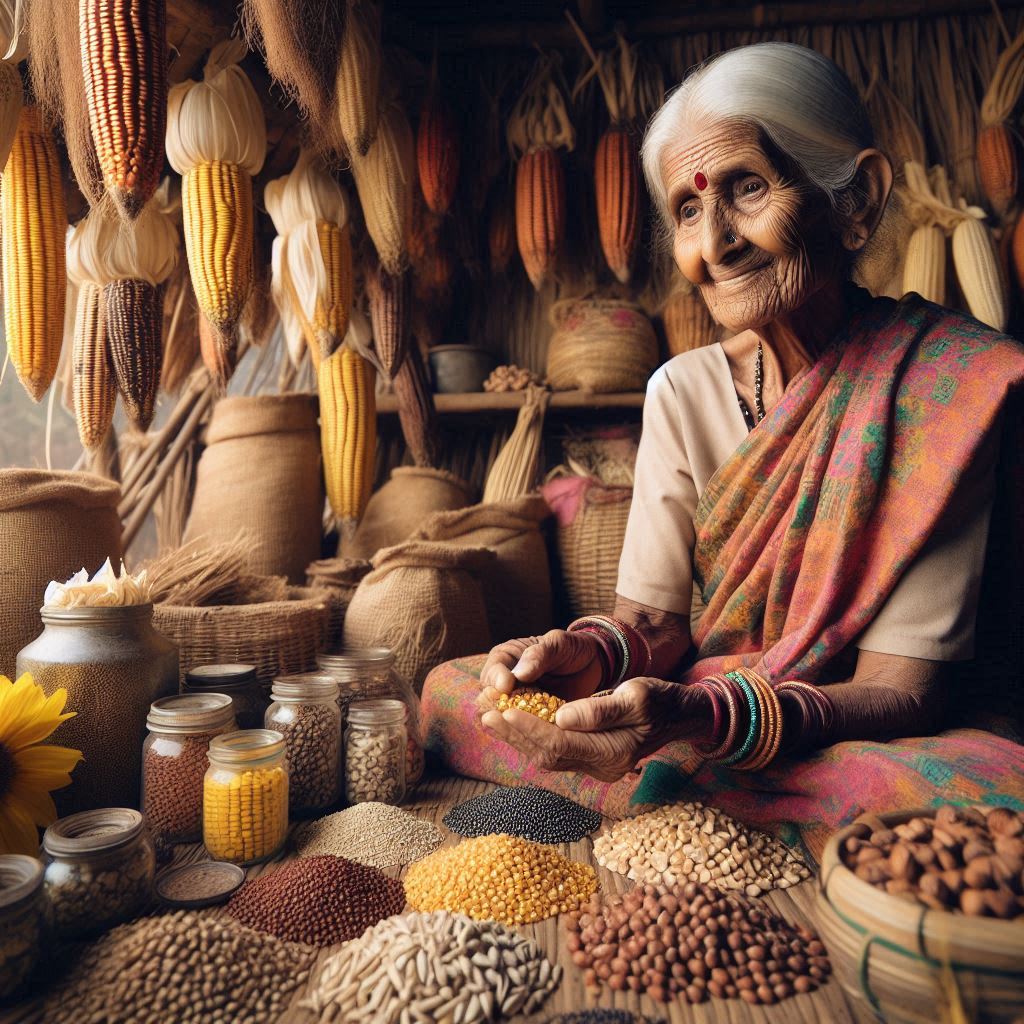
Why to Conserve Native Seed
Santosh BobadeShare
Native seeds refer to seeds that are indigenous to a specific region or locality, having evolved naturally and adapted to local environmental conditions over time. These seeds are typically traditional varieties that have been cultivated and saved by local communities for generations. The importance of native seeds lies in several key aspects:
1. Biodiversity Conservation : Native seeds contribute to preserving biodiversity by maintaining a wide range of plant genetic diversity within ecosystems. They often possess unique traits that make them resilient to local pests, diseases, and environmental stresses.
2. Cultural Heritage : Native seeds are tied to the cultural heritage of communities who have traditionally cultivated them. They represent traditional knowledge and practices related to agriculture, food, and medicinal uses passed down through generations.
3. Adaptation to Local Conditions : Native seeds are well-adapted to local climates, soils, and water availability. Their resilience and adaptability make them suitable for sustainable agriculture practices, reducing dependency on external inputs like pesticides and fertilizers.
4. Food Security and Nutrition : Many native seeds are nutritious and provide food security, especially in marginalized or remote communities where access to diverse and nutritious food sources may be limited.
5. Climate Resilience : As climate change affects agricultural productivity and patterns, native seeds can play a crucial role in breeding and selecting varieties that are more resilient to changing climatic conditions, such as drought or excessive rainfall.
6. Economic Opportunities : Promoting native seeds can create economic opportunities for local farmers and communities through seed production, sales, and value-added products derived from these seeds.
7. Environmental Sustainability : By promoting the use of native seeds, sustainable agricultural practices can be enhanced, promoting soil health, reducing erosion, and conserving water resources.
Overall, conserving and promoting the use of native seeds is essential for sustainable agriculture, biodiversity conservation, food security, and maintaining cultural identities and traditions associated with farming practices worldwide.
1. Biodiversity Conservation : Native seeds contribute to preserving biodiversity by maintaining a wide range of plant genetic diversity within ecosystems. They often possess unique traits that make them resilient to local pests, diseases, and environmental stresses.
2. Cultural Heritage : Native seeds are tied to the cultural heritage of communities who have traditionally cultivated them. They represent traditional knowledge and practices related to agriculture, food, and medicinal uses passed down through generations.
3. Adaptation to Local Conditions : Native seeds are well-adapted to local climates, soils, and water availability. Their resilience and adaptability make them suitable for sustainable agriculture practices, reducing dependency on external inputs like pesticides and fertilizers.
4. Food Security and Nutrition : Many native seeds are nutritious and provide food security, especially in marginalized or remote communities where access to diverse and nutritious food sources may be limited.
5. Climate Resilience : As climate change affects agricultural productivity and patterns, native seeds can play a crucial role in breeding and selecting varieties that are more resilient to changing climatic conditions, such as drought or excessive rainfall.
6. Economic Opportunities : Promoting native seeds can create economic opportunities for local farmers and communities through seed production, sales, and value-added products derived from these seeds.
7. Environmental Sustainability : By promoting the use of native seeds, sustainable agricultural practices can be enhanced, promoting soil health, reducing erosion, and conserving water resources.
Overall, conserving and promoting the use of native seeds is essential for sustainable agriculture, biodiversity conservation, food security, and maintaining cultural identities and traditions associated with farming practices worldwide.



